I didn't quite realise how lively the pu'ercha "scene" can be in Eastern Europe. I have recently been exchanging samples with teachums old and new from places around Slovakia and the Czech Republic (both beautiful areas of the world, and famous holiday destinations for the English), and am impressed by just how much tea you chaps are drinking. And good tea, too.
Following the trend, it should be unsurprising to know that there is a new tea business catering to this burgeoning community, and to folk further afield such as those in damp old England. Peter of Pu-erh.sk very kindly sent me a package of some of the hand-selected cakes that he has started to sell. They look darn good, to be honest.
The last time I had a cake from Mannuo, it was the leviathan from Essence of Tea. Actually, I think that might be the only other cake I've had from Mannuozhai. I bought a tong of it. So, you might say that this cake has a lot to live up to. Happily, it stands on its own just fine.
My mother, who is visiting us for the week-end (although I suspect she's really visiting her young grandson) passes by the tea-table and notes the sweet aroma of the leaves, so obviously has it filled the room.
"This seems as if it might be a first-class tea", I seem to have written. The soup, pictured above, is a dazzling yellow, which has the heavy, sweet scent for which one would hope.
Satisfaction is a cup filled with smooth, slick texture; vibrancy on the tongue of an almost effervescent nature; everlasting sweetness in the throat. In common with the Mannuo from Nadacha, this has low, punchy fruity characteristics, blended into a base of clean cereal. There is a lot to discover, and I greatly appreciate teas with the complexity and strength to keep me interested over a long tea session. I'm not a difficult man to please when it comes to tea, but I really appreciate the fine detail of this cake.
I keep adding leaves and am rewarded with thicker and stronger brews. The kuwei [good bitterness] is forthright and uncompromising, and yet it is bound up with the charming characteristics that I described above.
At $33/250g ($47 / 357g equivalent), this is priced nicely. In real money, it is £29 for 357g, which compares well its peers (which are becoming ever more expensive). I have to say that, excellent as this tea is, it does not quite scale the heights of the more expensive Nadacha cake, but it is a close-run contest. If you are looking for more Mannuo, or just darned good tea at a decent price, you really should consider Peter's cake. I had a thoroughly enjoying morning with it - thanks again for the sample.

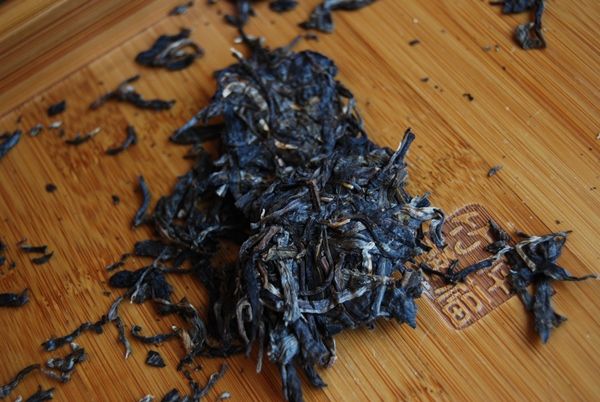
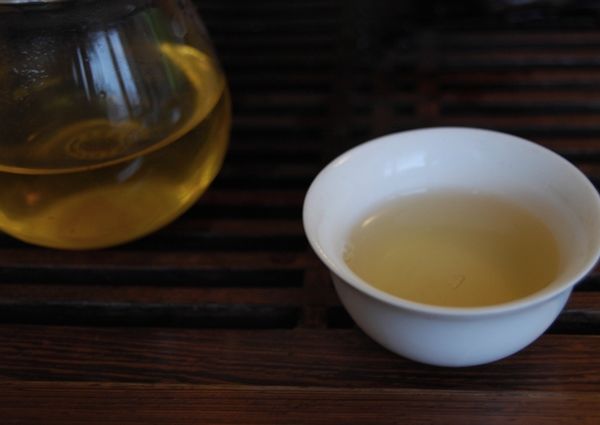
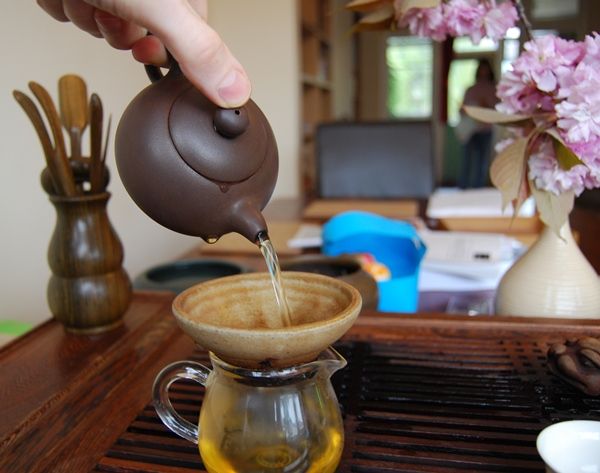
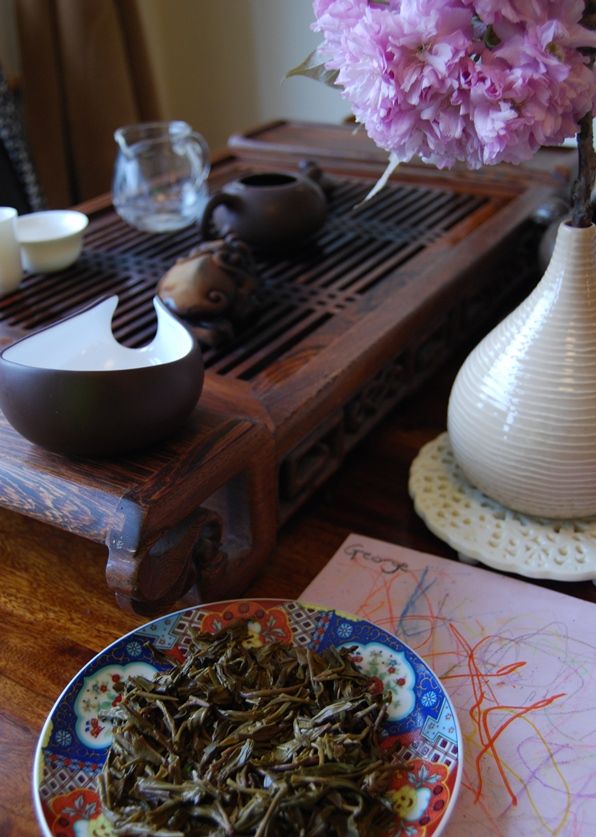
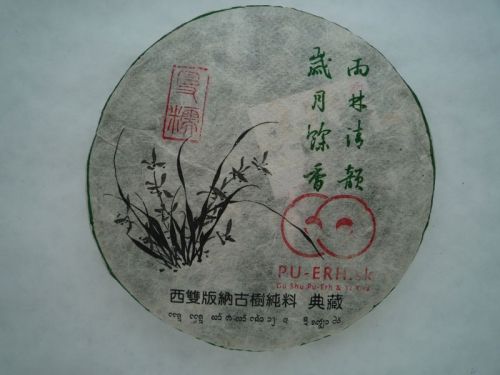
5 comments:
The price is actually 33 € per 250 g, so it's £38 per 357g beeng.
*sigh*, this is annoying. The original mention on their blog sez it's near Myanmar, and there definitly is a Bulang Man Nuo next to Myanmar. However, the tasting notes there and here does sound like it's the one Nada also did...
--shah8
Hi David, thx for adding Mannuo to your blog list, it's a pitty a most of it was sold after Petr Novak's blog appearead. This year there will be Mannuo again and promise to add more reliable notes about this particular Mannuo whereabouts. So far I probably used the notes from my chinesse friend who does tea for me but it might have been misunderstood due to chinesse-english-slovak translation chain. You are right about the 'tons' of tea drunk in these countries, the tea culture especially in Czech republic is an amazing phenomena, come and see, come to Prague and find more than 100 tea houses where only drink served is tea.
Im really happy you found out Peters tea! My personal favourite cake from last season was Bangpen. A bit more "bulang-ish" than Mannuo, but still very close to Mannuo.
Good lord, 100 tea shops? That's more than the centre of Chengdu. :)
The bottom line was that the tea was good, and, if it has sold out, then I can see why. I'll. Have a crack at the Banpen if I have a sample.
Toodlepip,
Hobbes
P.s. thanks for the price correction :)
Post a Comment